‘Kindly continue, Mr Abbot.’
‘Well, like I said, she was standing behind the bloke with the handlebars, and I was right behind her. To be honest, it’s always a bit of a scrum when the train starts coming. She sort of took a step back when I was about to move forward. I got an elbow in my ribs and she half turned round and yelled at me to stop pushing.’
‘And were you?’
‘Strewth, no. I say that on my word of honour.’
‘I hope everything you have told us is on your word of honour, Mr Abbot. It had better not be otherwise. What happened after she complained?’
‘She seemed to lose her balance. She put out her hands and gave the poor beggar a shove in the back. He was taken by surprise and what with his briefcase and umbrella he couldn’t do nothing to save himself. The train was just coming in and he fell straight in front of it. He must have been killed outright. He didn’t suffer.’
‘Thank you for your reassurance on that point. However, we’ll hear the opinion of our medical witness before reaching a conclusion.’
‘Just as you like. I was there.’
‘That is not in dispute. And did you notice the young woman’s reaction to the incident?’
‘She had her back to me, like I said. She screamed. She said something about getting some help. Then she pushed past the woman next to her and I didn’t see where she went after that. There was women screaming and some people running away and others wanting to have a look.’
‘You are quite certain that she said she was going for help? There is no evidence that she stopped to report the incident to anyone.’
‘She must have panicked and run off.’
The coroner was letting nothing get by. ‘You’re not here to give an opinion, Mr Abbot. Do you remember precisely what she said after she stopped screaming?’
‘Not every word, no. I was trying to see what happened to the poor bloke under the train, wasn’t I?’
‘However, the gist of what she said was that she intended to go for assistance?’
‘For help, yes.’
‘I think there is no purpose in persisting with this. Unless the jury have any questions they wish to put to the witness, he may stand down. Thank you, Mr Abbot.’
A second witness, a soldier, gave evidence next and added nothing to Abbot’s version of events. He was questioned closely about what he had observed of the fatal push. He had seen the woman in the headscarf sway back and forward and he was satisfied that she had reached out because she had lost her balance.
A London Transport official described the procedure for getting the public safely aboard trains in the rush-hour. It was agreed that Knightsbridge was one of the busiest stations, with passengers streaming in from either end of the platform. However this was the first time such an incident had occurred there. The edge of the platform was paved with ribbed stones to prevent people slipping and most people stood back a yard or so until the train stopped.
The coroner asked whether it was reasonable for someone to take a step backwards when the train came in.
‘Somebody standing close to the tunnel might. You get a gust of air as well as the sound of the train.’
‘But most people stand their ground?’
‘Experienced travellers, yes.’
A pathologist from St George’s Hospital took the stand and reported on the postmortem examination. In spite of what had been suggested, he said that death was not caused by electrocution. The impact of the train was the primary cause. The deceased had suffered multiple injuries, including a fracture to the cervical region of the vertebral column. Death had been almost instantaneous.
The coroner glanced up at the clock. ‘In view of the evidence already given, I don’t think it will be necessary to call Mrs Bell, the widow of the deceased, to give evidence. This might have been pertinent if there had been any possibility that the deceased took his own life, but it is evident that we can rule out suicide entirely. For the same reason I shall not be calling his employer or his doctor. I thank them for attending the court.’
Rose closed her eyes and felt the tension drain from her muscles. The relief was profound. It was a reprieve. In the state she was in she’d have given herself away, she was certain.
‘Ladies and gentlemen of the jury, I shall presently ask you to reach a decision as to the probable cause of this man’s unfortunate death. The sequence of events leading up to the fatal incident is not in dispute. He took up a position at the edge of the platform close to the tunnel from which the train arrived. There was some movement behind him precisely as the train was about to enter the station. The young woman immediately to his rear appeared to lose her balance and press her hands against the back of the deceased, who plunged off the platform. The train struck him and killed him. It is a matter of regret that the police have been unable to trace the lady concerned. It would have been helpful to have heard her account of the incident.’
He paused and looked around the court.
Rose sat still and looked back at him. Her veil was trembling like a web in the wind.
The coroner resumed. ‘One might postulate a number of explanations, one of which I am bound to invite you to consider, however remote it may appear. If the young woman felt some malice towards the deceased, it is not impossible that she could have followed him to the station with the intention of causing his death.
‘Should you feel that this hypothesis has any relevance whatsoever, I must advise you to bring in an open verdict, there being insufficient evidence to reach any stronger conclusion. I would then instruct the police to redouble their efforts to trace the woman. If, on the other hand, you take the view that there was no malice involved, then there can be no other verdict than accidental death.’
Rose looked across at the jury. They didn’t even retire to consider the verdict. The foreman conferred with them and stood up.
‘We believe it was an accident, sir.’
A sleek white Bentley Mark VI drew in smoothly to the kerb in front of St James-The-Less Church in Moreton Street where Rose had been waiting almost twenty minutes. Antonia was at the wheel.
‘Hop in, darling. We’re about to go slumming across the river. A pint and a pork pie in the Prince Regent. Do you know it?’
Rose didn’t know it. Nor did she know the man sitting beside Antonia. His presence threw her into angry confusion. Her first impulse was to turn and march away, and ten days ago she wouldn’t have hesitated. Having it brought home to her that she was now incapable of such a simple act of independence incensed her even more as she got into the back seat. The man turned and grinned at her in a way that was meant to be friendly. He got a cold stare in return. She was in no frame of mind to be sociable. Antonia was the bloody limit. This wasn’t meant to be a pub-crawl with some fancy man in tow. It was her first chance to talk to Antonia after the hellish week she’d been through.
Talk? Rose didn’t trust herself to speak.
The car had turned and started across Vauxhall Bridge before she could bring herself to take another look at the man, and then her thoughts weren’t charitable. Probably about her own age, he had the sort of fine black hair that would start receding before he was thirty. The deep-set brown eyes and tanned skin made her think of Italian prisoners of war in work-parties she had seen from the windows of trains. She’d always ignored their waving and whistling.
Meanwhile Antonia carried on as if it was a party. ‘Say hello to Vic, darling. He’s the dishiest man in London, as you can see, and I’ve been dying for you two to meet.’
Читать дальше
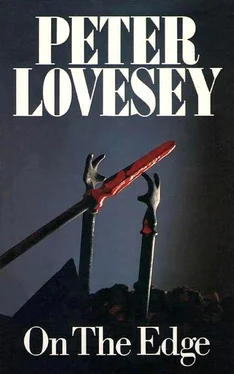
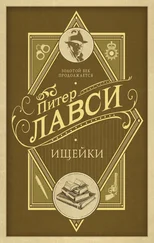





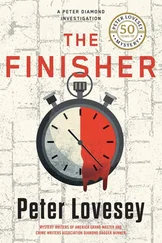
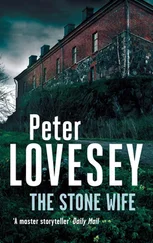
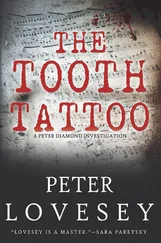
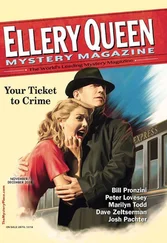
![Питер Ловси - Do Not Exceed the Stated Dose [Stories]](/books/437200/piter-lovsi-do-not-exceed-the-stated-dose-stories-thumb.webp)
